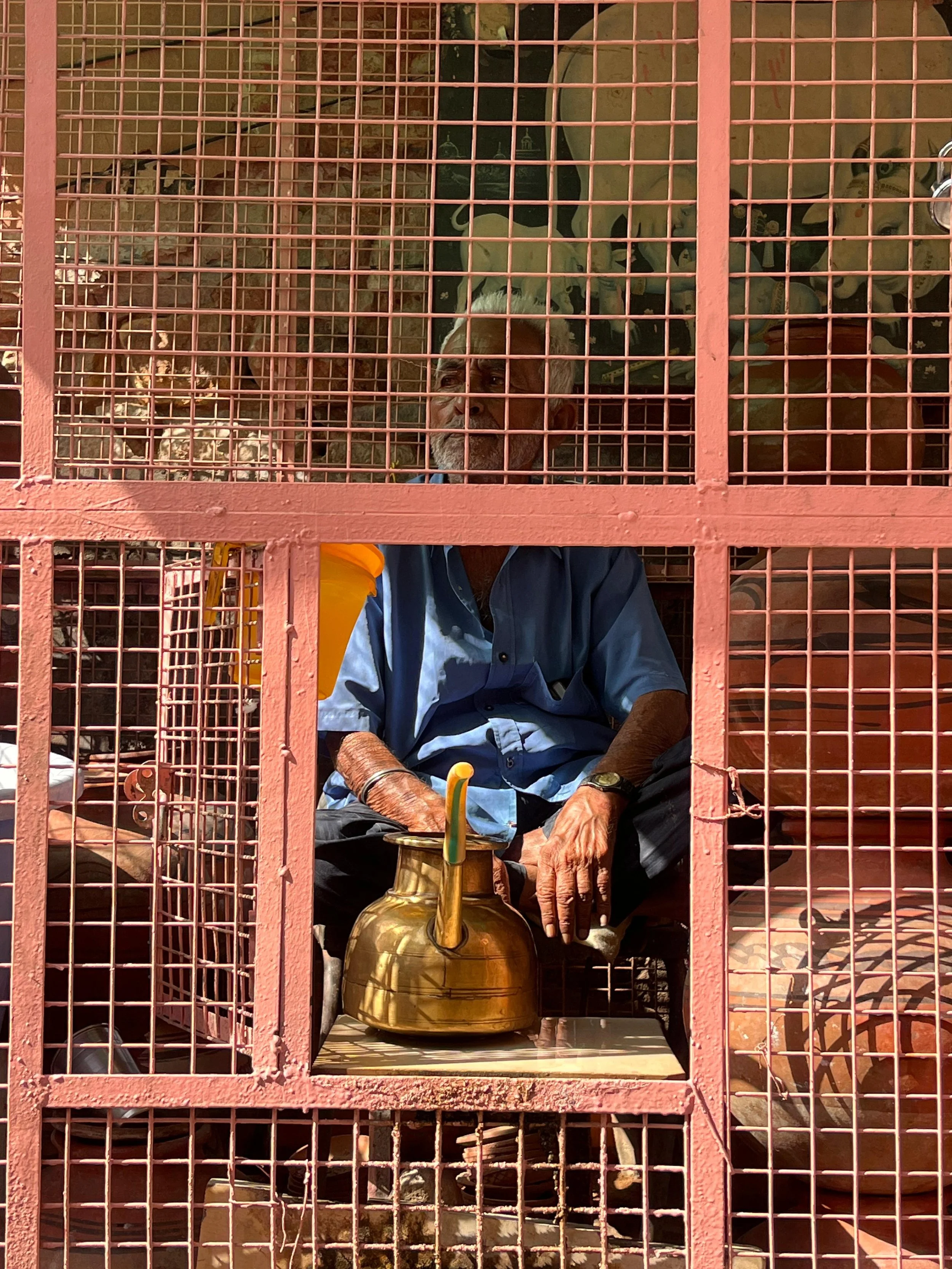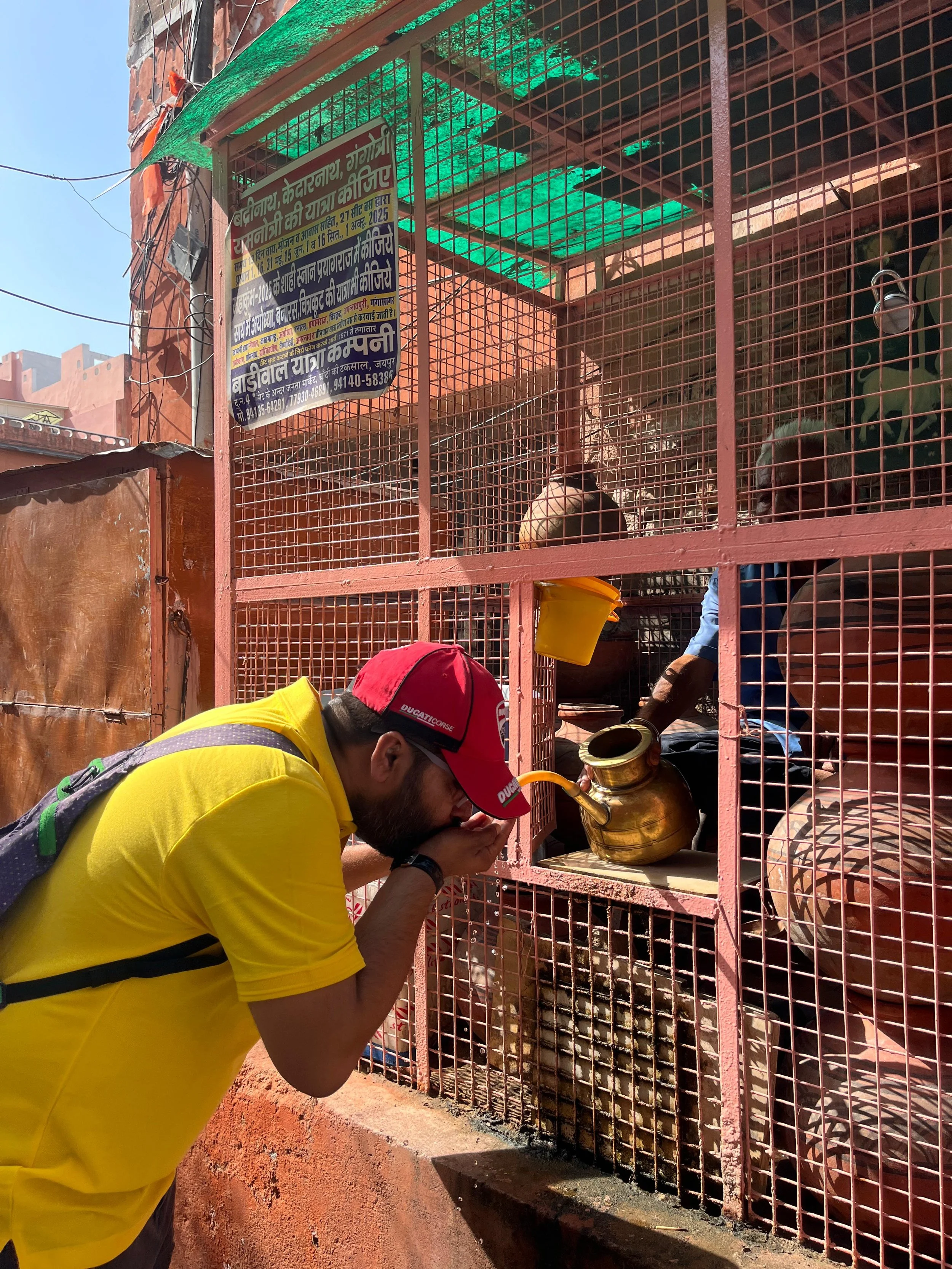Memories of Pyaau and the Person I Always Aspired to Be
Every April, a makeshift structure would appear outside my ancestral home, a pink iron mesh frame, airy and visible, layered with thatch and twigs for shade. At its center, a small open window through which Phool Wali Maa, as I lovingly called her, would offer water to passersby. I never knew her real name. Everyone just called her Maalan, a female flower seller.
She arrived each morning with a small cloth bag that carried her world. A packet of some vegetable to clean and peel; a small wireless radio that played only Bhajans; loose mogra, gulaab and genda flowers to sort, which she would string into garlands for the temple and the local market.
The walls of the Pyaau were adorned with framed images of Hindu deities, reflecting the beliefs of the donors who funded the Pyaau. But Maa was too free-spirited, too pragmatic to worship idols. Her only faith was in karma, and that’s what she believed she earned, day after day, by offering water to strangers with a sweet smile and sometimes a little story or a shared moment.
As a child, I found these Pyaaus deeply fascinating. First, I could never understand why someone would sit at the same spot all day, just to offer water to strangers. What did that even give them? What could possibly come from doing that?
Yet, I was magnetically drawn to them, and the people behind the small window. Mostly elderly, always gentle. They did this noble work with so much sincerity and humility. Who were they? What was their story?
I never spoke to them. But something about those moments stayed with me. The gentle clinking of the Ramjhara, the soft pour of water into cupped palms, and the sweet smile that cool water would bring to a stranger’s face. In those small exchanges, I learned what seva truly feels like, what kindness can do to an individual, any individual.
My school was about 30 minutes from home, and we used to go in a taxi brimming with chirpy children. On the way back, our driver Uncle would always stop at a Pyaau in the old city market. Two older children would hop out, collect all our bottles, and take turns filling them from the matkas.
The Pyaau stayed from the beginning of summer to the arrival of monsoon. And then, just as silently as it appeared, it would disappear, packed up until the next season.
A few days ago, while on a long walk celebrating the UNESCO Heritage City of Jaipur, we passed by a Pyaau tucked into a corner of the old city. It looked just like the ones I remembered from childhood. And suddenly, all those memories came rushing back. School days, long summer afternoons, Phool wali Maa, the clinking of lotas, the cool water, and the unspoken rituals of kindness.
It reminded me of something I’ve always held close, even if unconsciously: the person I aspire to be. Like the ones behind those tiny water-dispensing windows. Kind, warm, and quietly doing the work. With no applause, no spotlight. Just love. Just joy. Just presence. Just as simple as a glass of cool water on a hot day.


